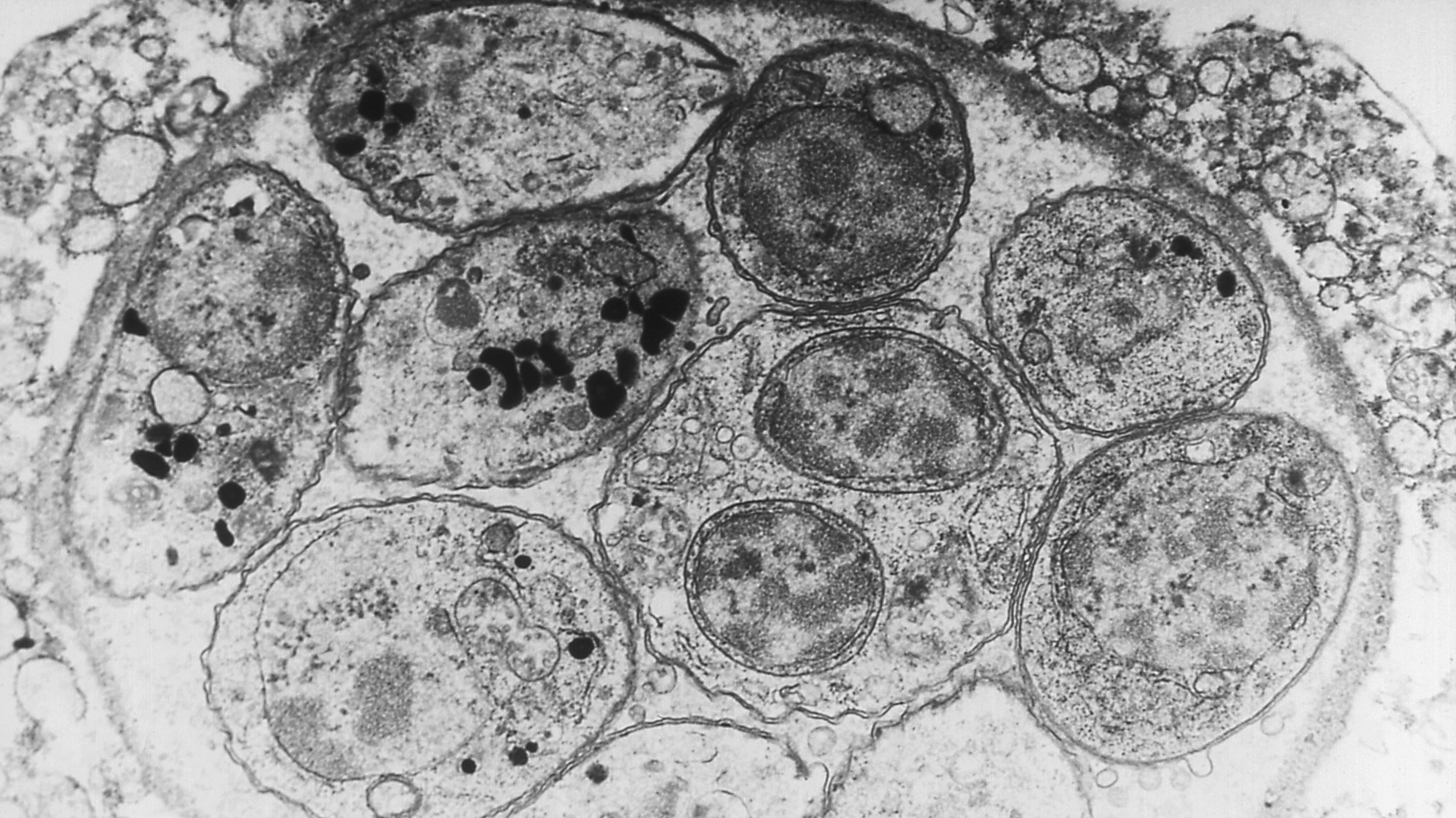A common parasite spread through undercooked pork and occasionally our cats might have more insidious health effects than previously suspected. New research suggests a link between infection with Toxoplasma gondii and an increased risk of brain cancer. At this point, however, scientists aren’t sure yet if there’s a direct cause-and-effect relationship, and the overall risk of brain cancer is still very low.
T. gondii is known for its mind-altering tricks on rodents, one of their natural intermediate hosts. In these animals, the single-celled parasites goad them into becoming reckless in the face of danger, causing them to no longer avoid the smell of cat urine. The rodents — and their parasites — are then more likely to get gobbled up by a feline, allowing the parasites to reach their primary cat host and reach full adulthood. They then breed and create a new generation of eggs that are pooped out by the cat into the environment, starting the gruesome life cycle anew. Humans are an unfortunate bystander in all this, getting infected either through close contact with cat poop or by eating meat (usually pork) contaminated with T. gondii cysts.
Acute T. gondii infections in people can be serious for those with weakened immune systems or for newborns who contracted it while in the womb. In most people, though, an acute infection causes no symptoms, while a few may develop mild, flu-like symptoms for several weeks.
Historically, these acute symptoms were thought to be the extent of the harm that T. gondii can cause to us. But more recently, scientists have found an intriguing connection between the parasite and subtle neurological effects in people, aided by the fact that cysts can survive silently in the body, including the brain, for decades. Chronic T. gondii infections have been linked to an increased risk of schizophrenia, lowered cognition, and behavioural changes like more risk-taking and aggression. This new study, published in the International Journal of Cancer, indicates that certain types of brain cancer may need to be added to that above list.

The researchers looked at data from research projects tracking people’s health over time, including a long-running study on cancer prevention run by the American Cancer Society. They specifically focused on people who were later found to have gliomas, the most common form of brain cancer. As part of their initial examination, the volunteers gave blood samples that were tested for antibodies to various germs, including T. gondii.
When the researchers compared people who eventually developed gliomas in these studies to similar people who didn’t, they found that the glioma group had a higher chance of having T. gondii antibodies. Overall, the presence of T. gondii was associated with more than a twofold increased risk of glioma. In people with the highest levels of one particular type of antibody to T. gondii, the associated risk was over three times greater. About 350 people with a glioma, including people over age 70 and younger than age 40, were studied, with similar associated risks seen in both age groups.
Other studies have found a similar link between T. gondii and brain cancer. However, according to the authors, theirs is the first evidence from what’s known as prospective research, which is when people are observed before they develop the condition that’s being studied. That’s important, because scientists can clearly know that thing A — in this case, T. gondii infection — happens before thing B — brain cancer. This alone can’t prove that T. gondii helps cause brain cancer, but it’s evidence that makes the connection more likely to be real.
“The findings do suggest that individuals with higher exposure to the T. gondii parasite are more likely to go on to develop glioma,” said study author Anna Coghill, a researcher at the Moffitt Cancer Centre, in a statement released by the American Cancer Society. “However, it should be noted that the absolute risk of being diagnosed with a glioma remains low, and these findings need to be replicated in a larger and more diverse group of individuals.”
There are about 24,000 new cases of brain cancer estimated to occur in the U.S. annually, accounting for around 1% of all cancers. Meanwhile, it’s thought that 11% of Americans over age six carry T. gondii, so upwards of 30 million people. That means that even if this connection is real, the chances of getting brain cancer as a result of chronic T. gondii infection are very low on an individual level. Likewise, not everyone who develops glioma will have T. gondii, and there are people with T. gondii who would have gotten brain cancer even if the infection had never happened — cancer risk is complicated like that.
Still, this is the latest bit of research suggesting that hidden infections in the body and brain can influence our health long after they first arrive.
